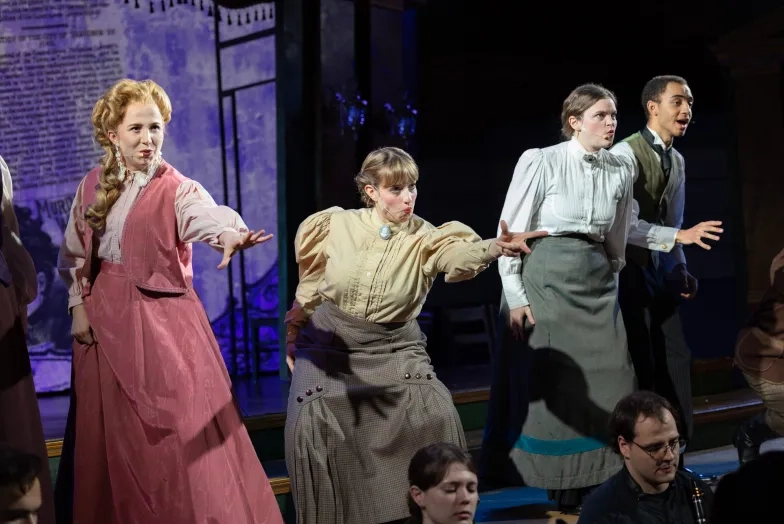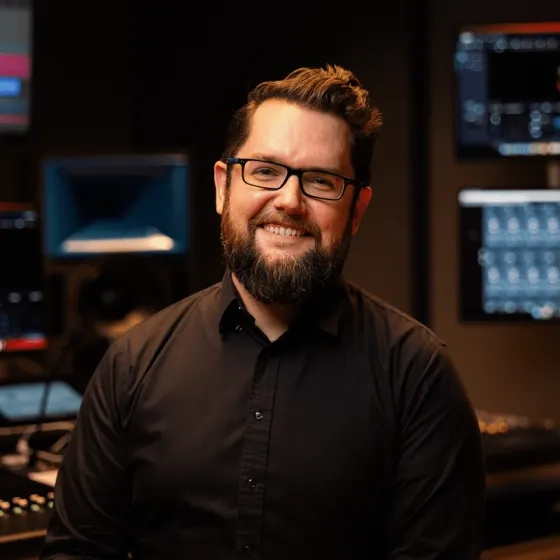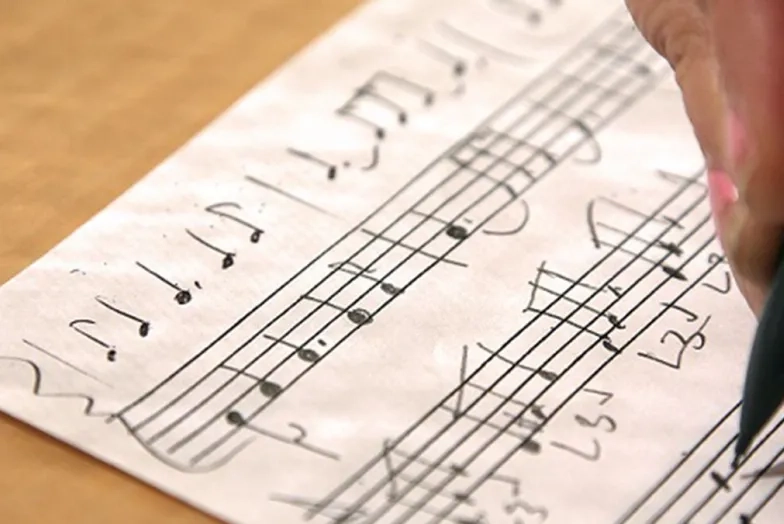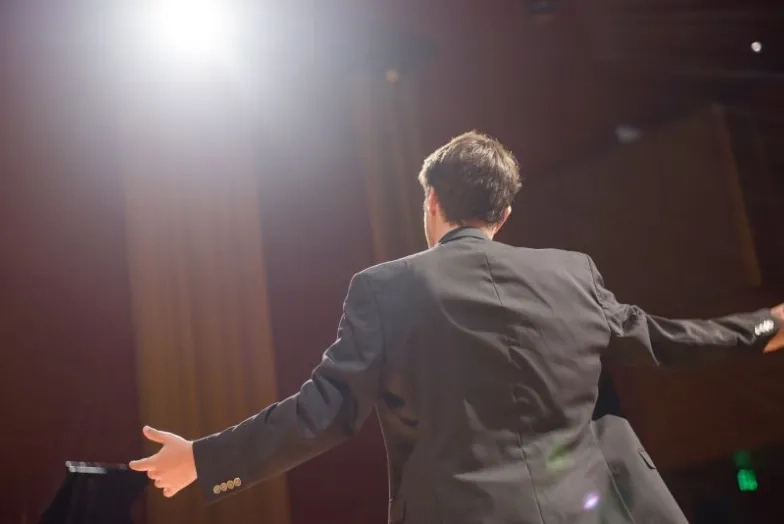Student Recital


7:30 PM

Courses Taught
Introduction to Spatial Audio
Building Applications for Music
Electronic Music Performance
Private Lessons
Education
DMA, Stanford University
MSc, University of Edinburgh
MM, Michigan State University
BM, Southern Illinois University Edwardsville
What is your hometown?
Glen Carbon, IL
What is your favorite recording? Why?
Some recent favorites, in no particular order:
Ryoichi Kurokawa: unfold
Igorrr: Savage Sinusoid
Cattle Decapitation: Death Atlas
Louis Cole: Quality Over Opinion
Full of Hell: Full of Hell & Merzbow
Snarky Puppy: We Like it Here
What are you passionate about outside of music?
Both my artistic practice and the work I create is fairly intense, so many of my passions outside of music are quieter activities to pour back in. I enjoy reading, tabletop and video games, cooking, and cats. My wife and I also enjoy brewing mead together; we've recently developed somewhat of a specialty for making bochet.
What is a favorite quote that you repeatedly tell students?
Just because you put a lot of time in, doesn't mean it's going to be great.
What question do you wish students would ask sooner rather than later?
"Is the music I'm making the music that I want to hear?"
What was a turning point in your career?
Over a decade ago, I bought a copy of Johannes Kreidler's book ""Loadbang"" to learn the music programming language Pure Data; I read that book front to back numerous times. I deconstructed every snippet of code with annotated handwritten notes directly into the book, and re-created them from scratch to gain fluency with working in the language.
That commitment to learning a new skill for my craft irrevocably changed the way I think about music-making and composition. Coincidentally, it also marks the beginning of my love of handwriting notes directly into books.
What is your daily practice routine?
Critical listening and engagement to some kind of music or artist I've never heard before is the most essential part of my daily practice routine; it's so important to never stop engaging with new music, especially if it challenges you in some way.
If you could play only three composers for the rest of your life, who would they be?
Ryoichi Kurokawa, Louis Cole, and the band Meshuggah
What do you think makes a concert experience unique?
There's something that occurs when there's a perfect alignment of music, performance, sound quality, ambience, flawless tech execution, and my own internal state - my mood or receptiveness to the art itself. When all of those elements align, it makes for a truly remarkable, euphoric, and transformative experience. I've only experienced a few such events in my life, but they are unforgettable experiences that I will carry with me forever.
Please list your most important collaborations. (Three only.)
First definitely has to be double-bassist Aleksander Gabrys, who I collaborated with on a piece I wrote called "Convergence". Following that, it would have to be my CCRMA team members Constantin Basica, Fernando Lopez-Lezcano, Dave Kerr, and Julie Zhu for the premiere and documentation of my dissertation. Lastly would be percussionist Tia Harvey, who championed a 25-minute percussion piece I wrote for her at a critical turning-point in my creative practice.
What recordings can we hear you on? (Please list five or fewer and specify record label.)
New Focus Recordings: Music from SEAMUS, vol. 31
Jikken Records: [neo]Lalia
płyta z audiomatu: PRIX CIME 2019
Many additional recordings self-released and available online.
other media
Douglas McCausland is a composer / performer, sound designer, and digital artist whose visceral and often chaotic works explore the extremes of sound, technology, and the digital medium.
Described as “Tremendously powerful, dark, and sometimes terrifying…” (SEAMUS), his works have been performed internationally, including festivals such as: Sonorities, SEAMUS, the San Francisco Tape Music Festival, MISE-EN Music Festival, Klingt Gut!, Sounds Like THIS!, NYCEMF, Sonicscape, and Ars Electronica. Recent honors include an award of distinction in the 2021 Prix Ars Electronica for his piece “Convergence”, winning 1st-Prize in the 2021 ASCAP/SEAMUS commission competition, and the gold-prize award for “contemporary computer music” in the Verband Deutscher Tonmeister 3D Audio Production Competition.
As an artist, he researches and leverages the intersections of numerous technologies and creative practices, such as real-time electronic music performance with handmade interfaces, spatial audio, dynamic and interactive systems, intermedia art, the musical applications of machine-learning, experimental sound design, and hardware-hacking.
Doug is the Technology and Applied Composition (TAC) Studio Manager at the San Francisco Conservatory of Music. He also recently completed his DMA in music composition at Stanford University. While at Stanford, he studied with Chris Chafe, Patricia Alessandrini, Jaroslaw Kapuscinski, Fernando Lopez-Lezcano, and Mark Applebaum.



